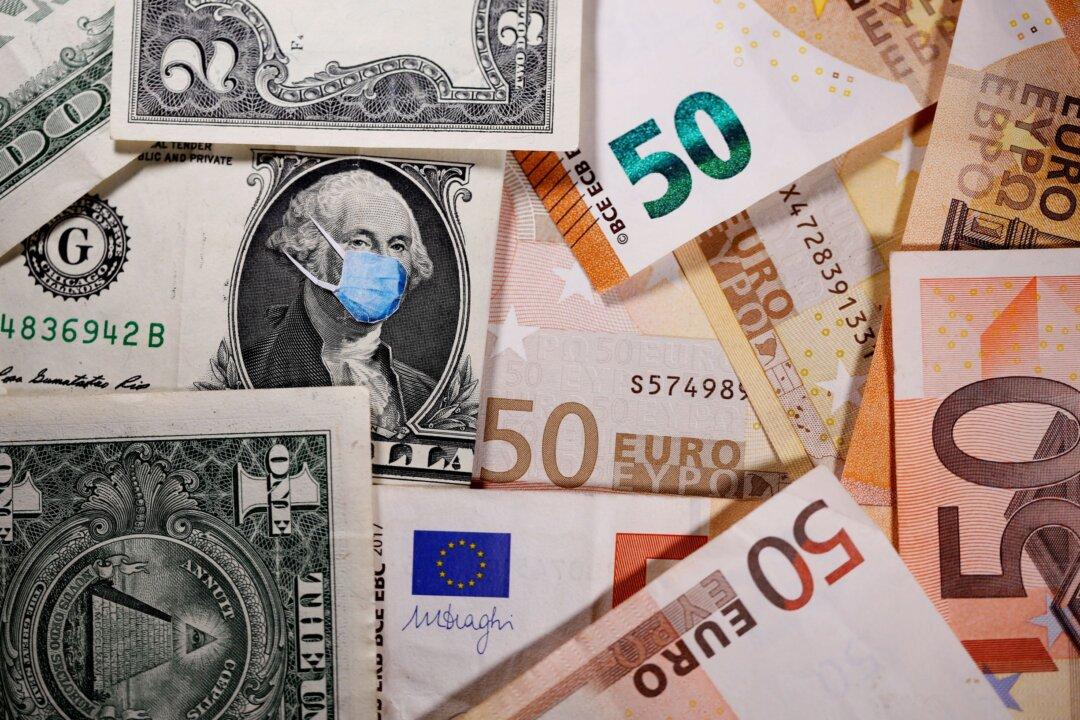LONDON—The euro slumped on Friday to near 16-month lows after Austria became the first country in western Europe to reimpose a full lockdown and Germany did not rule out doing the same.
The single currency has been on the back foot all week, pressured by growing expectations that interest rates will be tightened faster elsewhere, particularly in the United States.





